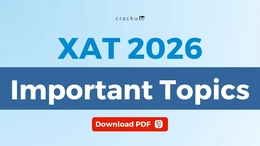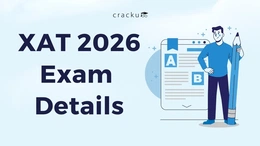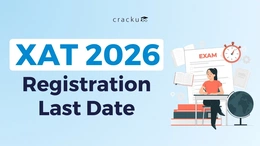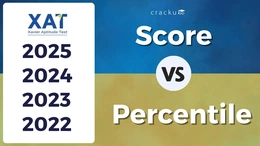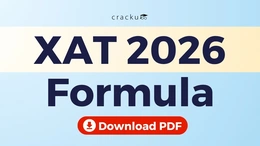XAT Preparation Strategy 2026: Since XAT is just a month away, aspirants who have a plan of action can greatly improve their accuracy and confidence through practice and effective time management. Scoring well in XAT broadly opens the door to top-tier B-schools in India. Top MBA colleges include, but are not limited to, XLRI, IMT G, XIMB, TAPMI, and many other institutions that value a broad-based aptitude, decision-making capacity, and conceptual understanding.
XAT Preparation Plan 2026
Having a structured XAT preparation plan can help students monitor their progress, build concepts, and improve accuracy over time. Since XAT is characterized by lengthy RC passages, difficult decision-making sets, and advanced quant questions, developing a structured monthly plan leads to improvement in overall performance and confidence.
4-week XAT Study Plan
Month | Focus Area | Key Activities |
Week-1 | Basics & Concepts | Build a foundation in QA, enhance grammar, start a reading habit, understand DM patterns |
Week - 2 | Practice Phase | Topic-wise practice for all sections, solve sectional tests, 1 XAT mock test. |
Week-3 | Mock Test Phase | Take 1–2 full mocks, deep analysis, focus on accuracy and weak areas |
Week-4 | Revision & Final Prep | Revise formulas, DM frameworks, solve previous year papers, polish exam strategy |
XAT Section-wise Preparation Strategy
XAT consists of three key sections and each of the sections requires a different approach to prepare. The Verbal section requires (or tests) an individual's reading ability, whereas the Quant tests clarity of concepts. The Decision-Making section is present only in the XAT and tests logical reasoning and ethical reasoning. A balanced approach should be taken across all sections.
Note: XAT previous paper plays a huge role in effective preparation for XAT. You can access the XAT previous paper on Cracku’s dashboard and give the actual paper in the exam format.
XAT VALR Preparation Strategy 2025
The Verbal section in XAT is often considered challenging. It contains very confusing reading comprehension passages with questions, critical reasoning questions, and tricky grammar questions where the RCs require deep comprehension, extensive vocabulary, and consistent reading of dense texts in order to become proficient; advanced preparation is often helpful.
- Practice dense RCs from philosophy, psychology, and other abstract topics. Take help of CAT daily articles for genre wise reading articles.
- Improve your grammar: modifiers, tense usage, parallelism, subject–verb agreement.
- Practice Critical Reasoning (CR): questions based on assumptions, paradoxes, and inference.
- Build vocabulary by reading articles or editorials every day.
XAT DM Preparation Strategy 2025
Decision-making is the most original and unpredictable component of the XAT. It evaluates your ability to exercise ethical judgment, logical reasoning, and balanced decision-making in business situations. In order to grasp the patterns and to develop the right mindsets for decision making, it is essential to read through previous years' sets of cases.
- Go through the past 5 years' DM papers to understand the pattern and logic.
- Avoid employing emotional or biased decisions and rather make decisions with ethical, logical, reasonable options.
- Learn frameworks for decision making, e.g., stakeholder approach, long versus short-term considerations, and the fairness principle.
- Practice regularly of business, HR, operational, and situational sets.
- The most important part is XAT Decision making questions practice. Solve as many DM sets as you can from diverse topics.
XAT QA DI Preparation Strategy 2025
The QA & DI part in XAT is moderately difficult and emphasizes more on conceptual clarity than speed. Arithmetic, Geometry, Algebra, and Data Interpretation are the key elements of the section. In order to score well in this section, candidates need to have a strong conceptual base along with high accuracy.
Preparation Strategy:
- Prioritize arithmetic topics - percentages, TSD, time & work, ratios, etc.
- Practice geometry, mensuration, and algebra regularly.
- Solve DI sets that require logical inference instead of speed.
- Go through all the XAT formula PDF that can be referred to for quick revision.
How to Prepare for XAT 2026
Successful preparation for the XAT 2026 requires an effective combination of concept understanding, sustained practice, and specific exam planning. As the XAT tests students' reading ability and logical reasoning judgment, the student has to solve advanced-level questions periodically.
Note: Make the best use of Cracku Free XAT mock test which comes with excellent quality questions and detailed analysis. XAT mock tests by Cracku are designed by XAT topper Sayali kale Ma’am (Rank 1 XAT 2025). One should definitely check out them as they are available at a very affordable price.
Preparation Steps:
- Establish good fundamentals in QA, VA, and DM.
- Work through previous years' papers to understand the difficulty level and question types.
- Complete weekly mocks and practice detailed performance analysis.
- Maintain accuracy focus rather than speed focus in strategy development.
- Practice writing essays in case she gets asked for the interview stage.
XAT Preparation Tips for Working Professionals
Working professionals pursuing XAT are usually busy and study at odd hours. Hence, time-efficient means of preparation will help them maintain a fair balance of work and exam preparation. If candidates can practice every day, with 1-1 practice on the weekends for the mocks, each candidate will have high accuracy and scores in XAT 2026.
Tips for working aspirants:
- Weekdays need to be about 1.5/2 hours of study.
- Weekdays need to include the solving of 1 RC and 1 Decision-Making case and/or data interpretation guide.
- Use the weekends for full-length mocks and practice to practice and cumulative preparation, and mindfulness toward your study needs.
- Utilize breaks during commutes to study vocabulary/ draw out formulas.
- This should be planning for 2-3 1-hour timeframes in addition to daily study.
- Start with priority scoring areas.
XAT Study Material 2026
XAT study material includes several things such as XAT mock tests, XAT preparation books etc. Since there is not a lot of time for XAT, one should be very efficient during preparation. One should definitely avoid spending time looking for XAT study material on youtube. Instead, one should go for structured preparation with Cracku’s XAT crash course which comes with a day with preparation plan and study material by XAT toppers. The XAT study material includes:
Category | Detail |
Comes with detailed analysis and actual exam format | |
Helpful in revision and paper pattern | |
Structured preparation plan with expert guidance and mentorship | |
Helps in improving section wise strategy |
What Makes XAT Different from CAT?
While XAT and CAT are both popular MBA entrance exams, they differ significantly in format, difficulty, and skill requirements. XAT includes the Decision-Making section and an essay component, making it more diverse and reading-intensive compared to CAT’s speed and reasoning-focused structure.
Feature | XAT | CAT |
Unique Section | Decision Making | None |
Verbal Difficulty | Higher | Moderate |
QA Difficulty | Moderate | High |
Overall Focus | Ethics, reasoning, comprehension | Speed, logic, quant |
XAT Preparation Strategy 2026: Conclusion
Preparing for XAT 2026 becomes easier with a clear study plan and regular practice. Since the exam has tricky RCs, unique Decision-Making sets, and concept-based Quant questions, focus on basics, solve mock tests, and revise previous papers to improve your accuracy.
With only a few weeks left, prioritize important topics, strengthen your fundamentals, and practice logical and ethical decision-making. Whether you are a student or working professional, studying consistently and solving quality questions every day will help you score well and attempt XAT 2026 with confidence.













